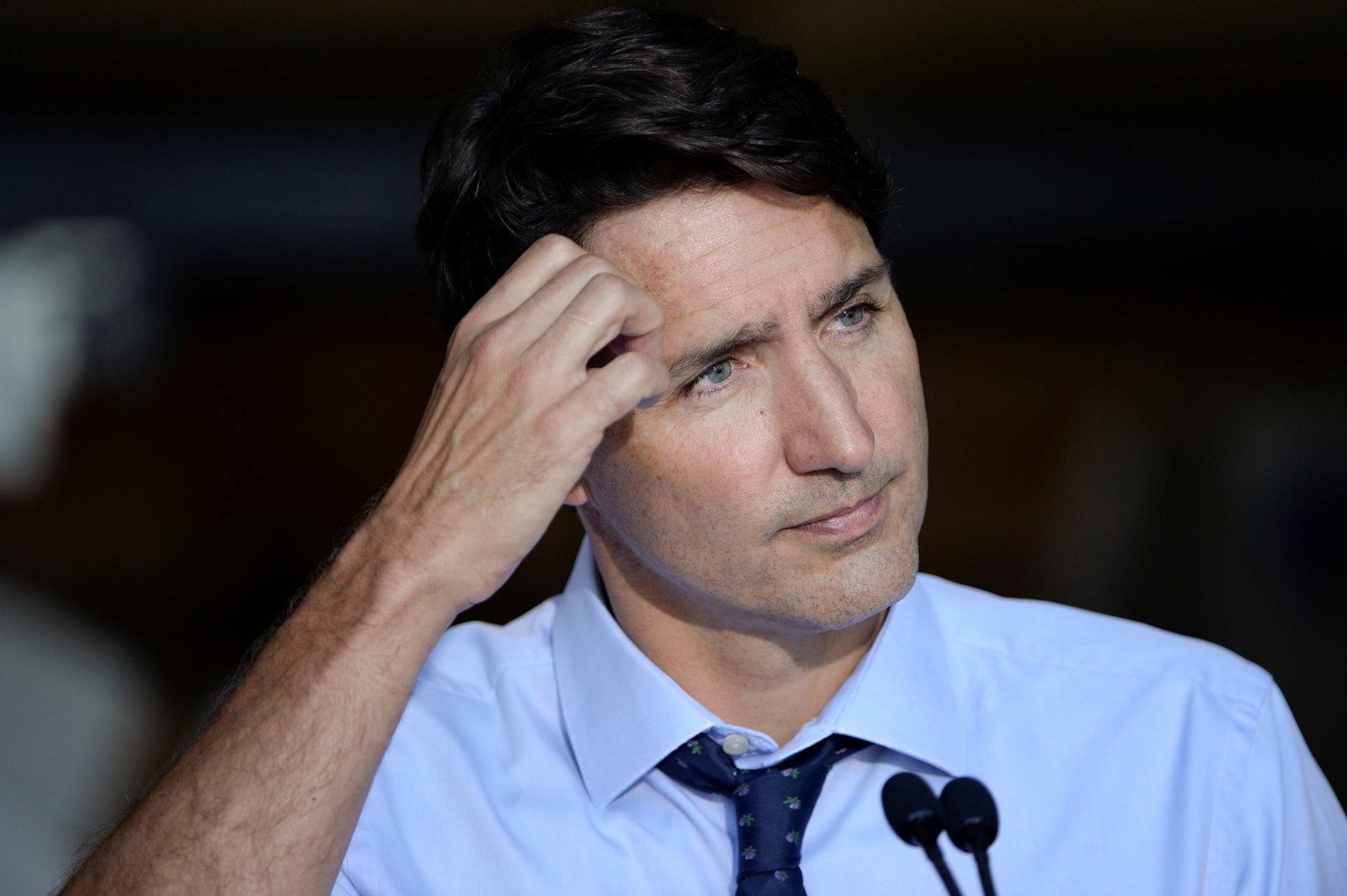Vaccine mandates in Canada might help Justin Trudeau win a snap election
The late American comedian Robin Williams once famously likened Canada and its proximity to the US to a “really nice apartment over a meth lab.”


The late American comedian Robin Williams once famously likened Canada and its proximity to the US to a “really nice apartment over a meth lab.”
For much of the pandemic, however, that vivid metaphor didn’t reflect reality. For example, while the US vaccine rollout was swift, most Canadians waited for months to get their first doses—and then remained half-vaccinated for 16 weeks, instead of the usual three or four, before receiving their second dose. (The government chose to get more people partially vaccinated as soon as possible rather than adhere to the manufacturer’s suggested schedule.)
More recently, however, the two countries’ usual roles have been more or less reclaimed. In the US, uptake of Covid-19 vaccinations started to plateau in late July, while Canada managed to surpass the US in vaccinations that same month. Today, 64% of Canadians are fully vaccinated compared to 51% of Americans, for whom vaccines and mask protocols have become hopelessly politicized.
Last week, Canadian prime minister Justin Trudeau announced that his government and Moderna had reached an agreement to build a Covid-19 vaccine manufacturing plant in Canada, so the country will not be as reliant on imports. Meanwhile, because of high vaccination rates, Canadian parents may have less reason to fret about kids’ risk of contracting Covid-19 ahead of the back-to-school season, whereas several American communities are now deeply and sometimes violently divided over mask mandates in schools, even as pediatric hospitalizations for Covid-19 soar.
All to say, it appears to be a good moment for Trudeau to call for a snap election for Sept. 20, which is exactly what he announced on Aug. 15. The prime minister, who has led the country since 2015, said it was time to give Canadians a say in “how to finish the fight against Covid-19.”
A Canadian referendum on Covid-19 policies or a vanity election?
Managing a global pandemic was not something that came up in the run-up to the latest federal election in 2019, he told reporters, and Canadians deserved to have this opportunity to weigh in on the government’s response.
Critics, however, are calling this a vanity election, and a waste of money, time, and resources, when the country is battling the fourth wave of the coronavirus pandemic. Trudeau’s Liberal party failed to win enough seats two years ago to claim a majority government. Trudeau hopes this election gamble will give him greater control over lawmaking, they say, while also defanging the opposition-controlled Parliamentary committees that have marred Trudeau’s reputation through various inquiries.
The current polls suggest the Liberals would win the majority Trudeau seeks by a slim margin. Today, 35% of Canadians say they support his party.
How vaccine mandates could boost Trudeau’s approval rating
Canada may have been slow out of the gate to get shots in arms, but Trudeau is now betting that vaccine mandates will prove popular with Canadians who see them as the smartest way to cut transmission of current Covid-19 strains. After telling Reuters in January that vaccine mandates were “fraught with challenges,” the prime minister last week announced that vaccination would be required for all air and rail passengers and public servants.
He’s confident that Canadians will agree with his new, clear position. By calling for a new election, he’s also putting pressure on political opponent Erin O’Toole, head of the Conservative party, which lags behind Trudeau in the polls by six percentage points. O’Toole has urged Canadians to get vaccinated, but the party officially opposes making vaccines mandatory.
In Canada, an early August poll found that 53% of residents supported vaccination mandates, while another 21% say they “somewhat support” them. Fewer than a quarter of respondents said they opposed mandates, with only 8% describing themselves as strongly opposed. By contrast, US public opinion on employer mandates is split nearly right down the middle.
Political pressure to do more for Afghanistan could derail Trudeau’s campaign plans
Trudeau also called for the election on the same day that Canada’s government evacuated Canadian diplomats in Afghanistan as Kabul fell to the Taliban. In fact, the prime minister opened the media briefing about the fall election by addressing the violence in Afghanistan and sharing news that Canada will resettle 20,000 Afghan refugees.
That initial plan is not enough for Jagmeet Singh, head of the left-leaning New Democratic Party (NDP), which currently has the support of 19% of Canadians in the polls. Singh argues it’s the wrong time to spend money on domestic politics when there’s more Canada could be doing for Afghanistan. He vowed to keep the situation front and center during the short campaign.
He’ll have help from public figures on the right. In an op-ed for The National Post, Rex Murphy, one of the country’s best-known conservative political commentators, called the fall election “flippant” and “needless” against the backdrop of the pandemic and the tragedy unfolding now in Afghanistan.